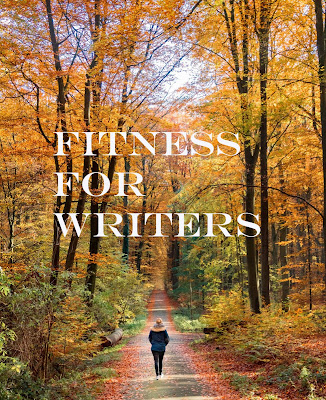Fitness for Writers - Tips for Action by Deborah Lyn Stanley
Fitness for writers includes: A daily writing practice to stay fit and physical exercise to support writing endeavors. As writers, we need both.
Let’s start with tips for maintaining physical fitness to support our writing time.
1) Walk! Walking is a great exercise. We are after a refresh time, not a full-blown workout. 10-20 minutes is good.
Listen to audio classical music or your favorite tunes.
Listen to writing craft audio books.
Record notes that come to mind & transcribe later.
2) Eat healthy foods, drink lots of water! Soda, coffee and tea don’t count here—Chips and chocolate don’t count either.
3) Remember to be realistic, watch your expectations and make adjustments. Create a plan that will work for you long term.
4) Exercise in spurts. Spread the good through-out the writing day to keep empowering thoughts, ideas and typing.
5) Promise yourself breaks; every 1-2 hours take one. Spend 10-20 minutes moving—Do you have stairs in your house? For your break, go up and down.
Avoid “a quick snack” and eat a meal. Your brain with thank you.
6) Be innovative, use a standing writing desk. Even above your treadmill. Walk between 1-2 mph. You may find you are more creative and have less back and leg aches.
7) Other ideas include stopping for:
Several push-ups, pull-ups, squats, or sit-ups
Use a balance ball chair. How you sit matters. Bad posture strains the neck and the spine.
Place your computer screen at a distance to avoid strain with the top of the screen at eye level
or slightly below.
Move & Stretch regularly, make it a routine
Be proactive concerning your health and well-being.
Your writing will thank you.
Tips for writing daily, which is sometimes a hurdle.
1) Stock the tools for your favored writing area, desk or office with all you’ll need. Include reference books, your goal plan, and project list.
2) Write every day. Start with journaling for 10-20 minutes to get the wheels rolling, then dive into your specified project for the day. Make this your practice.
Also, use your journal to create a strategic plan to reach your goal(s).
3) Include writing exercises. Write poetry or short pieces using a prompt.
4) Free writing is a great starter. What are you thinking about? Start writing about it and let it flow. You just may find inspiration for a future story or article. Let your creativity bloom!
*Free write with limitations, such as no ‘being’ verbs, or without using pronouns.
*Use a dictionary or newspaper. Choose one word at random to start.
*Use a line from a favorite poem or story as your inspiration.
5) Create a Metaphor List to draw from.
6) Use your Commonplace Book to jot down notes, any which way line breaks, in the margins--whatever, record ideas for writing a story or poem from a different perspective—note anything that comes to mind. You’ll remember as you read it later!
Have Fun & Keep Writing!
Deborah Lyn Stanley is an author of Creative Non-Fiction. She writes articles, essays and stories. She is passionate about caring for the mentally impaired through creative arts.
Visit her My Writer’s Life website at: https://deborahlynwriter.com/
Visit her caregiver’s website: https://deborahlyncaregiver.com/
Mom & Me: A Story of Dementia and the Power of God’s Love is available:
https://www.amazon.com/Deborah-Lyn-Stanley/
& https://books2read.com/b/valuestories
Share on LinkedIn
https://www.linkedin.com/
And more via the icon bar below:







.png)


